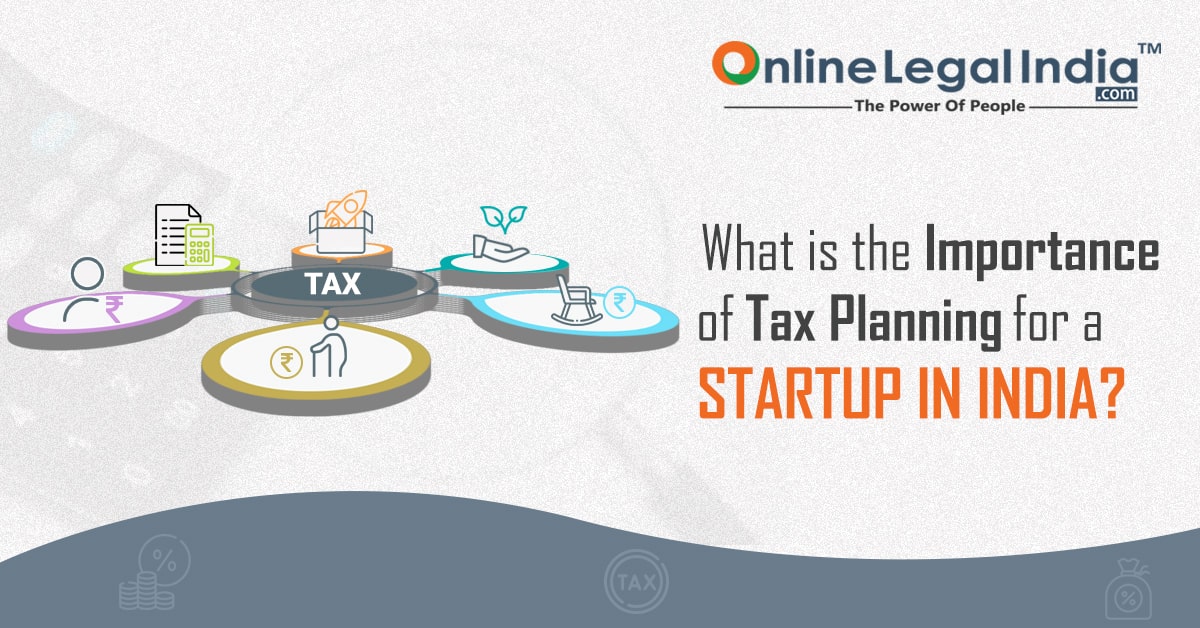The money of an NPO cannot be used to pay dividends to the company's members and must instead be utilised to promote philanthropic goals. The central government issues such firms an incorporation certificate, and they are required to follow the government's guidelines.
Failure to comply with the Central Government's stated obligations may result in the corporation being wound up on the government's instructions, according to the rules. Furthermore, if the firm's aims are proven to be fraudulent, harsh legal action will be taken against all participants of the organisation.
Section 8 Company
A Section 8 company is enlisted with the Ministry of Corporate Affairs of the Central Government. The goal of incorporating a non-profit making firm is to promote science, sports, art, education, research, social welfare, religion, charity, and environmental preservation, among other things, where profit plays no part. It is, nonetheless, critical to have objects with a non-profit motivation. The existence of such a firm is not based on or connected to the existence of certain people or individuals. It might, however, continue endlessly until it achieves its goal, merges with another company, or goes bankrupt.
However, according to the Companies Act of 2013, there is no such restriction on the capital necessary to form a business. This restriction, however, can be expanded at any time in the future as the firm expands. But A minimum of two directors are necessary if the business is formed as a private limited company registration, and a minimum of three directors are required if the firm is formed as a public limited company registration. There is a maximum of 200 members if it is established as a private limited, but there is no such restriction if it is incorporated as a public limited.
Registration of Section 8 Company
Companies Act 2013 governs the procedure for incorporation of a Section 8 firm, and according to this section, an application in Form No. INC.12 must be filed to the Registrar of Companies, together with the materials listed below.
Form no. INC - 13 - Company's Draft Memorandum of Association (MOA) and Articles of Association (AOA) in Form No. INC - 13 (as defined in the Act), with affixation of subscribers' pictures.
Form no. INC-14 - A Declaration must be included to Form no. INC-14 states that the draught MOA and AOA are in accordance with the provisions and standards of Section 8 and that the criteria of Section 8 have been met.
Form no. INC-15 - A declaration in Form number. INC-15 on stamp paper and notarized by each applicant member of the firm.
Form no. INC-9 - Form no. INC-9 from the first directors as well as each subscriber, on the necessary State's stamp paper and notarized.
An estimate of the company's prospective yearly income and spending for the following three years, including income sources and expenditure purposes.
Eligibility for Section 8 Company
A person or a group of people may be registered as a Section 8 Company if they have the below-mentioned aims or purposes. The objectives must be validated in order for the Central Government to be satisfied.
- When a firm seeks to promote science, commerce, education, art, sports, research, religion, charity, social welfare, environmental preservation, or similar goals;
- When the firm intends to invest all earnings (if any) or other revenue earned after formation only in the advancement of such purposes;
- When the corporation has no intention of paying a dividend to its shareholders.
Documents Required for Section 8 Company Registration
- Certificate of Digital Signature
- Association Memorandum
- Articles of Incorporation
- Photographs in Passport Size
- Members' Id Proof (Aadhar Card, Passport, Voter Id, etc.)
- Details of Directors (When Other Companies/LLPs Are Members)
- Evidence of Address
- Identification Number for Directors
The Most Important Benefits of Forming a Section 8 Corporation
- The purpose or goal of the firm would execute any activity and get honesty and commitment since the Union government is approving the same by establishing the section-8 company.
- Because of its stringent standards, the same presents a trustworthy picture in front of internal and external users of the details with regard to the communities.
- The dependability of a section 8 corporation has a lot more to do with communities and other types of charity organisations.
- According to the communities of trust, grants and subsidies from the government and other institutions were acknowledged to the section 8 firm.
Section 8 of the Companies Act: Total Exemptions and Reliefs for Companies
- The directorship under Section 8 companies is exempt from the computation of the ceiling towards the most significant number of directorships indicated in Section 165 of the Act.
- A general meeting was held by providing notice of not less than 14 precise days rather than 21 exact days.
- Instead of four meetings each year, a Section 8 business would convene at least 1 meeting every 6 calendar months.
- The recording of minutes of general meetings, board meetings, and other resolutions must not be subject to application to the section 8 company registration. However, meeting minutes may be produced within 30 days after the meeting's result in circumstances where the firm's articles provide for confirmation via the procedure of minute distribution.
- A section 8 firm would be one of its members.
- Section 149(1) of the Act does not apply to Section 8 companies since they are not required to engage an independent director. Because of the reasons stated above, the Audit Committee under Section 8 will not be required to include independent directors in addition to its board members.
- Section 8 businesses are exempt from the requirement to appoint a trained CS professional as their company secretary.
- The same benefits from the applicability of secretarial standards.
- Section 8 enterprises are exempt from forming a Nomination and Remuneration Committee or a Stakeholders Relationship Committee.
Total Number of Members in Section 8 Companies
- Section 149(1) of the Companies Act requires a minimum of three directors for a public limited company and two directors for a private limited company, with a maximum of fifteen directors. However, there is no minimum or maximum prescription for a section 8 business.
- The second proviso to section 149(1) mandates the appointment of a woman director in a specific class of firms.
- Section 149(3) of the Companies Act requires that all companies have resident directors.
- Section 165 of the Companies Act 2013 states that directorships in Section 8 companies will not be totalled up when the total number of directorships is computed, i.e. it will not be counted while adhering to the Act's maximum limit of twenty directorships.
- Section 149(1) of the Companies Act of 2013, as amended by an exemption notification dated June 5, 2016, stated that Section 8 companies are not required to nominate an independent director and are exempt from any subsequent rules relating to independent directors.
- According to Section 149(3) - Section 8, a corporation must have at least 1 resident director, i.e. a director who has stayed in the country (India) for at least one hundred & eighty-two days or more in the preceding calendar year.
The total number of board meetings & their Quorum
Section 8 corporations must hold at least one meeting every six months, according to the exemption notification read with sections 173(1) and 174(1). The quorum for board meetings is eight directors or one-quarter of its entire strength, whichever is smaller. However, the quorum must consist of at least two people.
Annual Compliances Under Section 8 Company<
- As per Section 139 of the Companies Act, enterprises must appoint an auditor within 30 days of the commencement date. The company's books of accounts and handwritten returns will be audited by a statutory auditor who will be employed for a 5-year term.
- Maintenance of Statutory Registers:As per Section 8 of the Act, the company is required to keep a statutory record of its members, loans received, charges made, directors, and others.
- Meeting of the calling board:Section 8 corporations will hold at least 1 meeting every six months.
- Statutory Audit:Every organisation that enrols under the Companies Act is required to have its books of accounts audited by a CA once a year.
- GM Notice: A section 8 corporation may conduct a general meeting, whether yearly or exceptional, with at least 14 days' notice.
- AGM:An annual general body meeting would be conducted once a year, within six months of the fiscal year's end. However, in the event of the first annual general meeting, the firm might have the AGM in fewer than 9 months after the first fiscal year ends. You must discover that the interval between 2 AGMs shall not exceed 15 months.
- Board Reports:The company's board of directors will provide their board's report in a certain format, which includes all financial statements and an additional annexure. The board report would be required to be provided in Form AOC-4.
- Financial Planning Statement of the Company: The organization would get the balance sheet, profit & loss account, cash flow statement, & other financial statements audited by a statutory auditor, i.e. would be provided with ROC.
- Tax returns: Income tax returns must be filed at the end of each fiscal year before the 31st of October.
- Tax audit: A tax audit report in Form 10B would be prepared by a charity, religious trust, or organization enrolled under Section 12A or filed an application for registration in Form 10A. Form 10B is an audit report produced by a CA at the taxpayer's request.
- Filing Financial Statements: The financial statements would be supplied in the appropriate form (E-FORM AOC-4) within 30 days of the annual general meeting date.
- Annual Return Filing: Within 60 days after the annual general meeting, all data, such as management details and shareholders' information, will be reported in Form MGT-7 with the Registrar of Companies.
- DIN KYC: Anyone who receives a DIN on or before March 31st of the fiscal year shall submit his KYC on or before September 30th of the following fiscal year.
- GST Yearly Return: In addition to GST, the enrolled assessee was required to file GSTR-9 or the annual return.
Conclusion
Companies Incorporation Sixth Amendment Rules, 2019, issued 7th June 2019, have eliminated the necessity for filing Form no. INC 12, which was previously required. This modification has made the incorporation of Section 8 firms as straightforward and easy as that of other companies.
Section 8 Companies can be formed by reserving names in part A of the Spice+ form, followed by part B of the Spice+ form, or by submitting Spice+ directly. Section 8 firms will be issued a license number during the incorporation process.

 By Online Legal India
Published On 05 Dec 2022
Updated On 06 Jan 2023
Category Section 8 Company
By Online Legal India
Published On 05 Dec 2022
Updated On 06 Jan 2023
Category Section 8 Company







.jpg)

